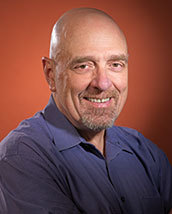Walgreens wins big with unique employment program
In our June issue, we ran a story describing how the concept of sustainability in business goes far beyond its roots in conservation and environmental responsibility.
I was reminded of that again in May, when Randy Lewis, senior vice president of distribution and logistics for Walgreens, spoke to the annual gathering of the Warehousing Education and Research Council (WERC).
Lewis, you may recall, was the driving force behind Walgreens' extraordinary program to employ people with disabilities at its DC in Anderson, S.C. We first wrote about that effort in October 2007. In that story, we noted that Walgreens had committed to the plan even before selecting a site for the facility. And it was never seen as a short-term initiative or social experiment. Walgreens' decision to locate in Anderson was largely driven by the area's sizeable labor pool of disabled workers and the support services needed to help them succeed. "We wanted a sustainable model," Lewis said at the time.
And sustainable it has been. Today, workers with disabilities make up 40 percent of the work force at the Anderson DC, performing the same work as their more typically abled co-workers for the same pay. Walgreens has expanded the program to other facilities, most recently to its newest DC in Connecticut. And the Walgreens example has inspired other companies, including Lowes, Best Buy, Meijer, and Sears, to make similar efforts.
In his remarks at WERC, Lewis recounted what Walgreens had learned from the effort. Some of the results were surprising. "We found that the disabled cost less, and have lower turnover and absenteeism" than other workers, he said. They also turned out to be far more flexible than managers had envisioned, Lewis noted. When startup glitches created problems at the DC, the disabled workers pitched right in along with everyone else to do whatever they could to help.
Another revelation has been the program's reception by other workers at the site. "We knew this would work for people who never had a job," Lewis said. "What shocked us was the impact on those without disabilities." He said managers have sent him letters describing the joys of working there. "They said that they had to know every person as an individual. That has made us better managers, better parents, better husbands and wives, better citizens."
Lewis is fond of quoting from Irish poet Seamus Heaney's "Cure at Troy": "Believe in miracles and cures and healing wells," he recites. I'd argue this success is no miracle, but simply humans at their best.
Walgreens considers what it has accomplished so important—Lewis characterizes it as "the best thing we've ever done"—that it offers to help other companies do the same, inviting them to tour its DCs and offering guidance on its website, www.walgreensoutreach.com.
"We can make a difference," Lewis says. "Try this. You won't fail."
Related Articles

Copyright ©2024. All Rights ReservedDesign, CMS, Hosting & Web Development :: ePublishing